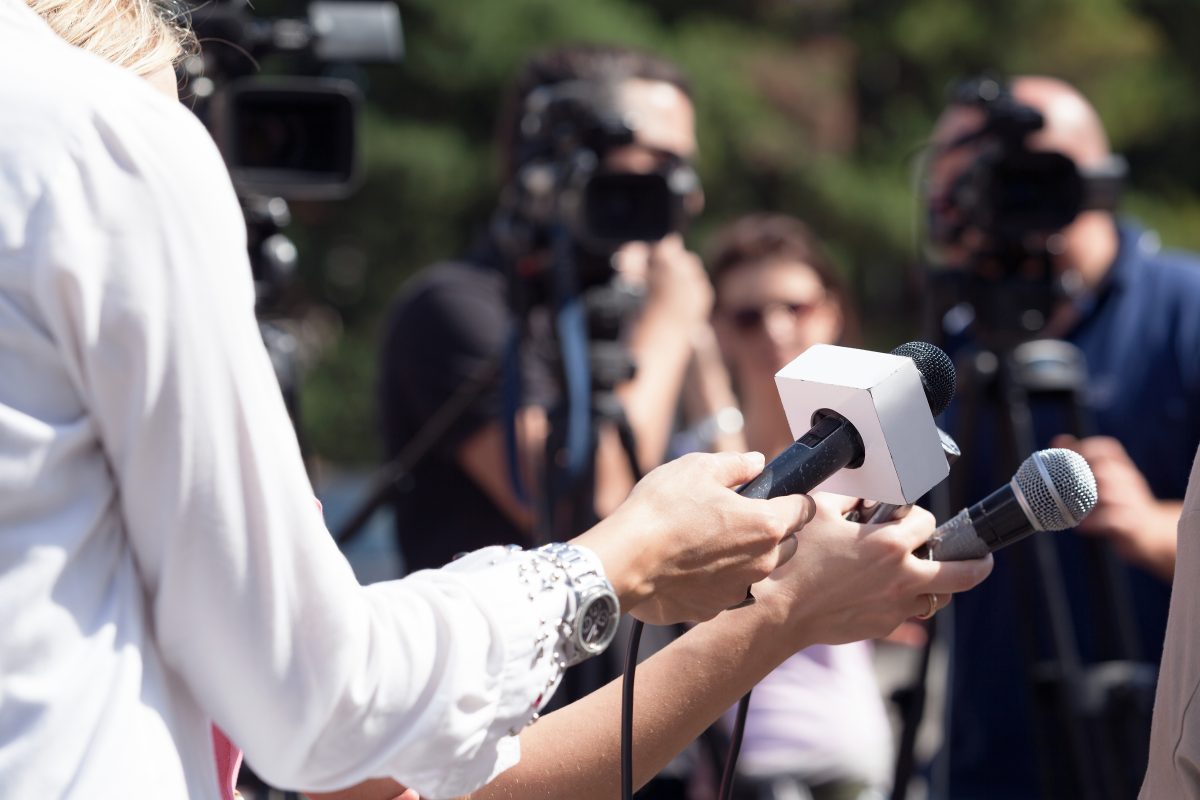It’s been said that the number one fear of most people isn’t of heights, or death, or bugs, or clowns. The number one fear of Americans is public speaking.
So, if you’re surprised one day with a request to speak before a crowd, or give a media interview (which is very similar), it might not be out of the ordinary to start sweating bullets.
But it doesn’t have to be that way.
This is the first of a series of blogs I’ll be writing about Interacting with the Media. As a former TV news anchor and reporter, I used to be on the other side asking the questions. I know exactly what the traditional media typically looks for in a successful interview. In recent years, I’ve written online articles, blogs, produced video for online consumption, and managed social media channels, so I’m also familiar with what reporters and bloggers in the “digital” world want.
Many of our clients work on public projects. And you, or someone you work with, could be tasked with communicating in some way with the public and the media.
It would be unusual if you weren’t at least a little nervous about that, no matter how much experience you may or may not have in speaking and giving media interviews.
Fear Starts Young
Some motivational psychologists think that the fear of public speaking could be traced back to our years as kids. Were you ever discouraged from performing in front of others as a youngster? Plus, if you had a bad experience when you had to present to an audience as a kid, that could just make fear and self-doubt worse.
But I want you to keep a couple of things in mind as comfort, including what I call, “The Most Important Thing to Remember” about public speaking. I’ll get to that in minute.
Fear is Normal
The first thing you should remember is that fear in these situations is normal and you shouldn’t worry about resisting the fear. Instead, embrace it! Mark Twain said, “Courage is resistance to fear, mastery of fear, not absence of fear.”
Fear is Energy
You can rally your fear to the occasion by riding that energy in healthy ways, such as taking time to organize your thoughts, and put words to them.
Practice, Practice, Practice.
If the situation allows, and you practice what you’re going to say over and over again until it comes as second nature to you, you’ll learn to relax a bit. When you reach that state, you’ll appear even more spontaneous and passionate about what you’re saying, because you won’t feel like a fraud. You’ll know that you know your stuff.
This leads to what I call, “The Most Important thing to Remember,” which is:
Know Your Content, and the Rest Will Follow
Once you know the content backwards and forwards, you’ll enter the media interview with confidence, which is the most important element, knowing that what you speak is the truth. To me, this is even more important than the way you “perform”, in technical terms, during a media interview. I’ll provide some tips on technique later in this series, and there are things that can be learned, but the thing to do first thing is to know your content backwards and forwards. I don’t mean memorizing words. I mean being sure you know and understand the facts you need to talk about.
It helps if this is a topic that you have a passion for…something you feel strongly about…because then, the reporter and the audience will perceive your enthusiasm. I’m not talking about jumping up and down and being a cheerleader. You can be subtle about it. People will notice.
Here’s another good thing to remember:
You have more power and control than you think.
Even in a situation that seems uncontrollable, you have control of your actions and words. Information is power, and you have the ability to use that power in a positive way.
While you can’t control events entirely, you can control your responses to them.
You can help shape media coverage and, thereby, help shape public perceptions of the project you are involved with, or the issue.
So don’t be self-conscious. Be self-confident. Know Your Content, and the Rest Will Follow.
My posts in this series will provide helpful insight into preparing for and giving a great media interview. I understand things about that world that can really help you. In my next entry, I’ll tell you what reporters need from various types of interviews.

